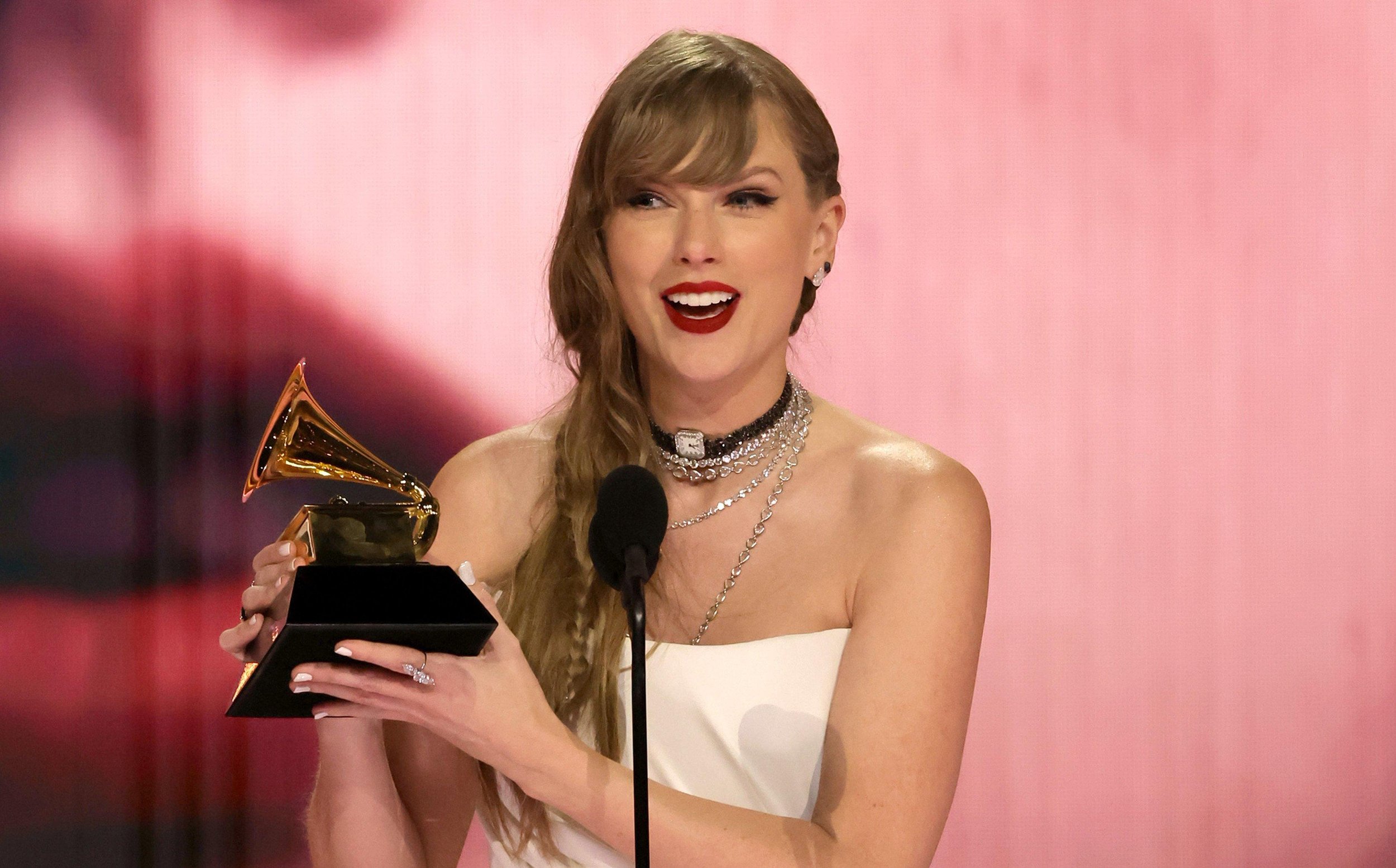Grammys Review
Aadya Sharma
The Grammy Awards have long been a source of disappointment to Americans, as evidenced by declining viewership over the years. However, Sunday, February 4th, 16.9 million viewers tuned in to watch the 66th annual Grammy Awards Ceremony—a significant increase from last year and the highest viewership in the last four years. Possibly, this is a reflection of the many new changes and trends this year. So if you didn’t watch it, or if you just forgot everything already, let’s unpack this year’s Grammys.
Maybe the biggest news to come out of all this is that Taylor Swift not only won Best Pop Vocal Album and unexpectedly announced her next album (Tortured Poets Department, releasing April 19th) but also became the first person to ever win four Album of the Year awards. Taylor wasn’t the only woman slaying this year, either. There were many wins for women in the music industry, with Miley Cyrus winning her first ever Grammy, Boygenius winning Best Alternative Album and Best Rock Performance, Victoria Monet winning Best New Artist and Laufey winning Best Traditional Pop Vocals for her album “Bewitched.” Many of the performances were by women, such as Dua Lipa’s energetic opening to the show, SZA’s performance of songs from her album “SOS,” which made her the most nominated artist this year, Billie Eilish’s tear-jerking performance of “What Was I Made For” from “Barbie” (which won the Song of the Year) and so many others. Several major awards categories were also dominated by women, like Best Pop Solo Performance, and Album of the Year. Overall, the Grammys did a great job paying respects to the amazing women in the industry—the Oscars should take notes.
Photo taken from grammy.com.
Perhaps another reason for this year’s increased viewership is the fact that the Recording Academy tried to appeal to a wider audience this year by bringing back classic artists and honoring the legacy of their music. The show featured performances from legends such as Tracy Chapman, Joni Mitchell and Billy Joel—for whom it was also the first time performing a new song in 30 years, in his attempt at “finding the joy in it again.” The In Memoriam section of the show was extended this year to include specific tributes to music giants that were lost this year—with Stevie Wonder honoring Tony Bennett; Annie Lennox honoring Sinead O’Conner; Jon Batiste and Lenny Kravitz honoring Clarence Avant; and Fantasia Barrino honoring Tina Turner. The Academy also presented the special Dr. Dre Global Impact Award to the superstar Jay-Z, who, in his speech, expressed an opinion that resonated with many viewers who have felt disappointed by the show in the past: “Some of you may feel like you got robbed. Some of you may get robbed.”
Alongside their commitment to honoring musical legends and uplifting women, the Grammys this year continued their push for diversity and inclusion. The performance by Burna Boy, featuring 21 Savage and Brandy, was the first time the genre of Afro Beats was performed on the Grammy stage, which host Trevor Noah, a South African himself, expressed appreciation for. The award of Best Música Urbana Album from the Latin American music category was featured in the main show for the first time as well. It’s a breath of fresh air to see the Grammys trying new things this year and upholding its obligation to the underrepresented or underappreciated artists in the industry.
